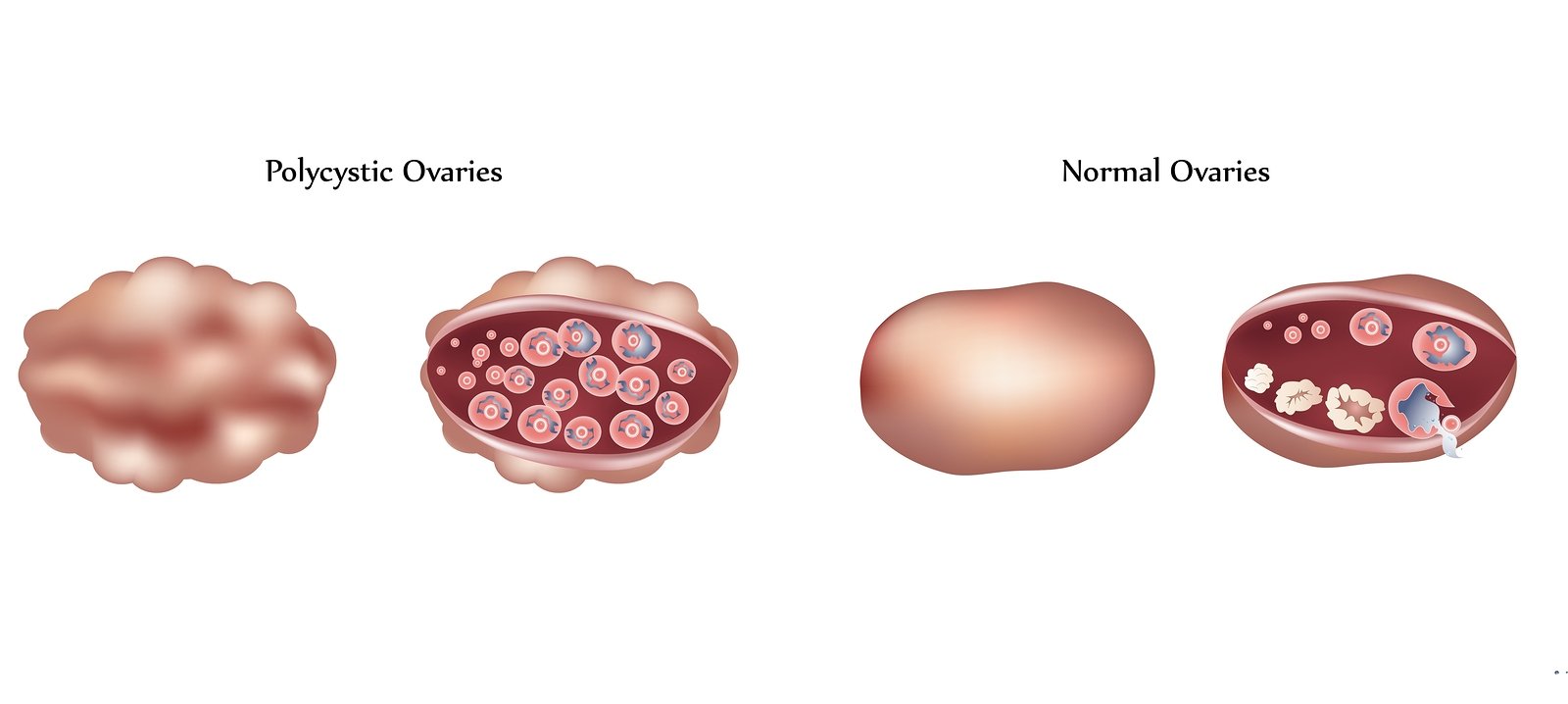Defining and Treating Polycystic Ovarian Syndrome – Naturally
Have you ever experienced pain mid-cycle (“I thought cramps were only supposed to happen DURING my menses!?”)? Do you have acne along your chin? Are you experiencing hair growth in places you would rather not talk about? Is your cycle irregular? If you have answered yes to any or all of these questions, you may be suffering from Polycystic Ovarian Syndrome better known as PCOS. Maybe you don’t have PCOS, but something is not quite right with your hormones. A combination of diet and herbs is helpful in not only treating polycystic ovarian syndrome, but also many women’s health issues. But first, let’s talk about common questions about PCOS and what to do about it!
What is Polycystic Ovarian Syndrome (PCOS)?
PCOS is a complicated condition that occurs as a result of hormone imbalance that can be caused by a number of factors. As a result of the hormones being out of balance, numerous cysts can form in the ovaries. An imbalance of one hormone can throw off other hormones because our entire endocrine system works together. The hormonal shift can lead to many of the symptoms described below.
What are common symptoms of PCOS?
- Acne – specifically on your chin and jawline
- Hair growth – also specifically on your chin, but chest, abdomen, and back too
- Pain during ovulation – cysts can rupture
- Infertility – PCOS can cause fertility problems
- Irregular cycle – if your hormones are off, this can throw off your cycle
- Weight gain
- Insulin resistance or diabetes – Insulin can cause an increase in free testosterone by decreasing sex hormone binding globulin production from your liver
- Depression
How is PCOS diagnosed?
- A comprehensive intake to discuss your symptoms, changes, and menstrual history
- Physical exam to evaluate symptoms
- Blood testing is recommended to evaluate hormones and blood sugar. Blood tests are also important to rule out other causes.
- An ultrasound is needed for the final diagnosis. The ultrasound will be able to detect cysts on the ovaries. Generally more than 9 cysts can be seen on one ovary.
What are the long term effects of PCOS?
- Infertility
- Weight gain
- Insulin resistance which can lead to type II diabetes
- Increased risk of cardiovascular disease
- Elevated blood pressure and cholesterol
Treating Polycystic Ovarian Syndrome
What can I do immediately?
- Start exercising – weight loss can help rebalance hormones if you are overweight
- Quit smoking
- Increase your vegetable intake and reduce sugar intake
- Start tracking your cycle to help determine whether you are “regular” or not
What do I do next?
- Schedule a visit with me to discuss your history and begin lab evaluations even if you’re not sure whether you have PCOS or not, I can help make that distinction.
- Learn how to treat PCOS naturally with dietary changes and herbs prescribed specifically for you
- Start feeling and looking your BEST!


